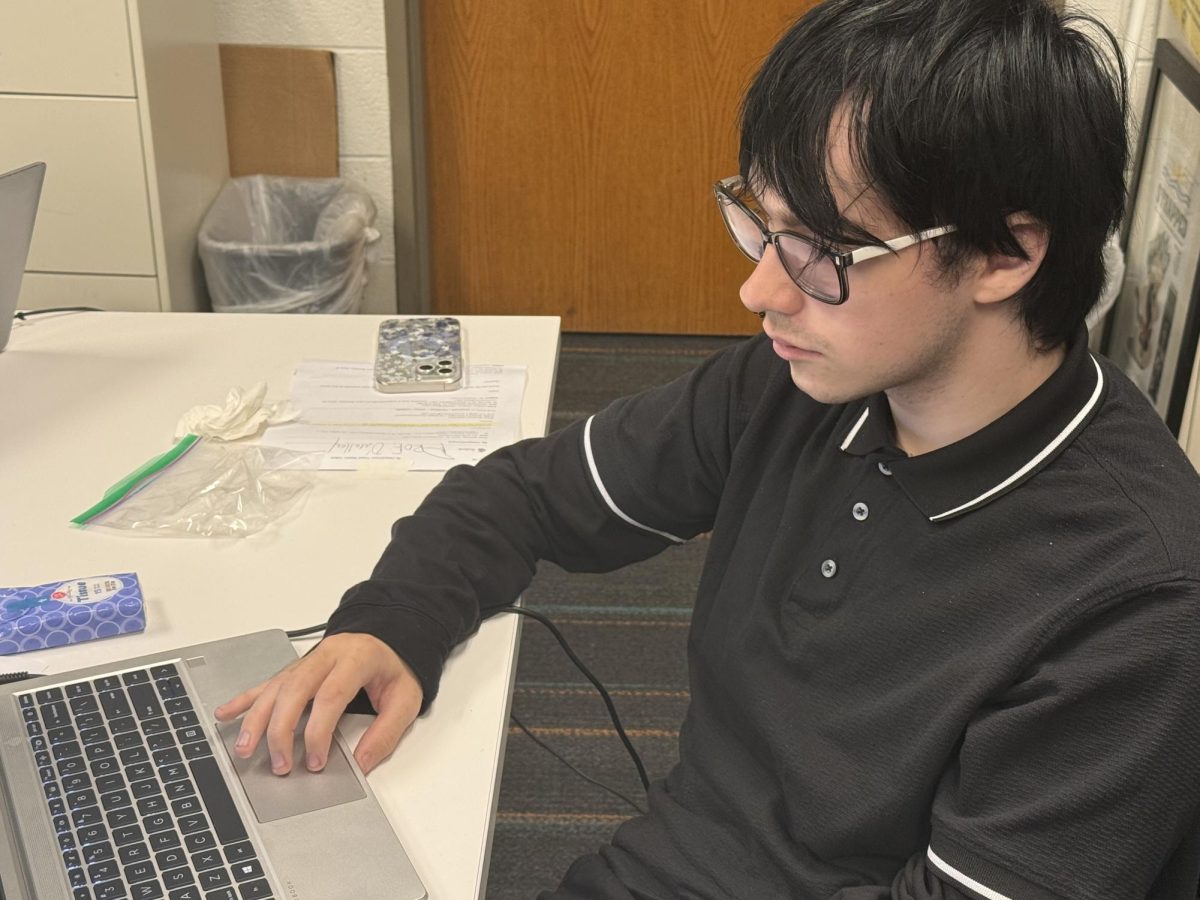
Amanda Lewis
Campus Current reporter Cleric Rutherford says two officers of the student chapter of Turning Point USA told him to leave their meeting.
The president and secretary of the new AACC chapter of Turning Point USA told a Campus Current reporter on Monday to leave their meeting.
The reporter, Cleric Rutherford, said club President Starr Busey and Secretary Carlie Barnes canceled the meeting after he refused to leave.
“I didn’t want to leave because I wanted to report on this new club that a lot of people have been talking about and was creating a lot of buzz, and I knew I was well within my legal rights to be there,” Rutherford, a second-year education student, said.
Rutherford said he learned about the on-campus meeting, the club’s second, from a post on the Facebook page of Maryland Delegate LaToya Nkongolo, a Republican who represents District 31. Nkongolo had announced the club’s formation in a Sept. 17 Facebook post.
Turning Point USA is a national organization founded by conservative activist Charlie Kirk, who was assassinated on Sept. 10 in Utah as he spoke at Utah Valley University. A Turning Point USA spokesman has said more than 50,000 students have inquired about starting campus chapters since Kirk’s death.
Campus meetings that are open to all students generally may not exclude student journalists.
The officers did not explain why they did not want a reporter at the meeting, Rutherford said.
Rutherford said he was there to get information about the organization for a follow-up article that he planned to write once officials in the Office of Student Engagement decide whether to make the chapter an official campus club. Campus Current published Rutherford’s first article about the club, noting its formation, on its website on Sept. 24.
“Things got a little hairy … because the people at the meeting were basically trying to assess what our intentions were for being there and assess whether we were a threat, essentially,” said Paul Murphy, a first-year biology student who accompanied Rutherford to the meeting. “We were there to check things out. … As far as we knew, it was an open meeting. Anyone was allowed to join.”
Murphy said the officers told him they had not planned to conduct any official business at the meeting.
“Things got a little heated between the president and [Rutherford],” Murphy said, “so a professor stepped in and tried to calm things down … but then when [Rutherford] redirected his focus to her … that sort of escalated things from there.”
Murphy said he observed that the officers and the faculty member felt threatened by Rutherford’s presence.
“We weren’t there to be intimidating,” Murphy said.
He called Barnes “very diplomatic in her exchanges with us” after that scene, saying she didn’t initially understand why Rutherford and Murphy were there. “It became much more cordial by the end of it.”
